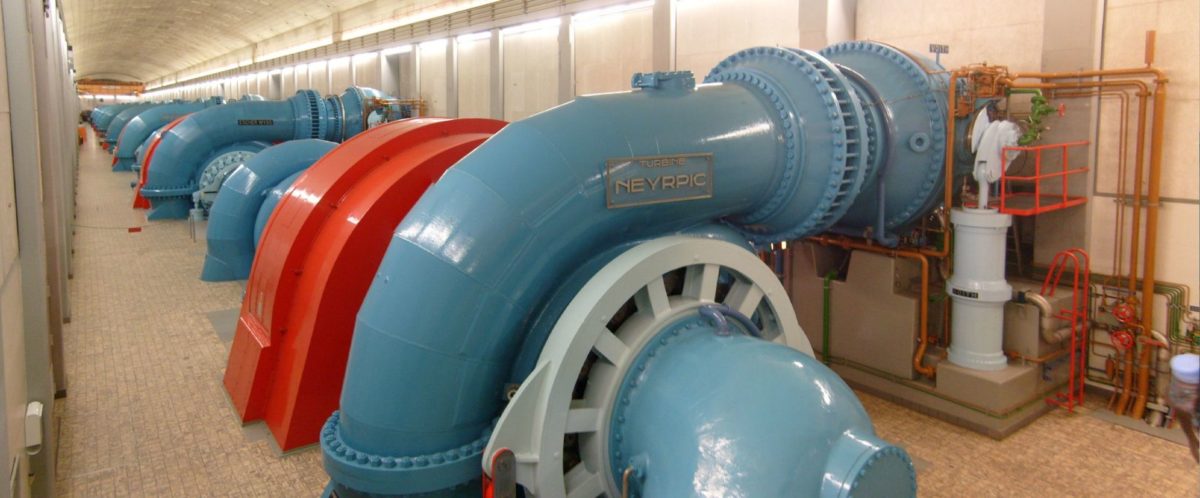A new report by the Center for Study of Science, Technology and Policy (CSTEP) recommends a differential pricing mechanism for pumped-hydro energy storage (PHES) projects in India.
The proposed pricing mechanism has different pumping and generation prices, instead of only generation-based energy charges. The report says developers can use profitable generation from the differential pricing mechanism for fixed cost recovery.
The current pricing mechanism considers PHES only as a generator, which needs to recover its cost by selling power at a determined tariff to the beneficiaries/consumers. The tariff for a PHES project includes fixed costs and variable costs.
The fixed cost component, or capacity charge, is to recover the capital cost incurred on the plant every year, such as plant and machinery, manpower, and administration costs. The variable cost component, or the energy charge, is used to recover the cost incurred during the plant operation.
However, PHES acts as both a generator and a consumer. The PHES draws power from the grid and acts as a consumer when water is pumped from the lower reservoir to the upper reservoir during off-peak hours. And it acts as a generator at the time of releasing water and generating energy.
Therefore, the report highlights the need for developing a differential pricing mechanism for PHES during its pumping (off-peak operation) and generating mode (peak operation). The report also recommends the pricing mechanism for PHES should be based on specific use cases. The current pricing mechanism does not consider the grid flexibility aspects of PHES. The report highlights the need to develop a pricing mechanism for each specific service offered by the PHES.
Differential tariffs
The report proposes new tariff computation methods for peak load shaving and renewables smoothing. For peak load shaving, PHES can be operated in the market (such as the Indian Energy Exchange) as a merchant power plant with different pumping (off-peak rates) and generation prices (peak rates). The peak price should be 1.33 to 1.35 times the off-peak price for profit generation.
Grid-connected PHES plants that utilize renewables for their pumping requirements and are co-located with renewables plants enable round-the-clock support from these renewables plants. The report says incentives should be provided in such cases. The incentives could be one or a combination of the following: compensation for avoiding renewables curtailment, avoided cost from high-priced purchase of thermal or gas plants, grid flexibility incentive similar to ancillary unit plants, and generation-based incentive in the range of INR 1 ($0.01) per kilowatt-hour to attract more investment in the sector.
In addition to the above pricing mechanisms, the report recommends financing mechanisms for total PHES project cost funding. These include budgetary subsidy on viability gap funding, expense distribution (resources, assets, and investment distribution) through collaboration between local government and developer, and foreign direct investments in the PHES sector.
The report states the new pricing mechanisms will lead to higher revenue generation for PHES projects. Developers can recover the fixed costs from their revenues. PHES projects can also benefit from competitive pricing by operating in the market.
This content is protected by copyright and may not be reused. If you want to cooperate with us and would like to reuse some of our content, please contact: editors@pv-magazine.com.









3 comments
By submitting this form you agree to pv magazine using your data for the purposes of publishing your comment.
Your personal data will only be disclosed or otherwise transmitted to third parties for the purposes of spam filtering or if this is necessary for technical maintenance of the website. Any other transfer to third parties will not take place unless this is justified on the basis of applicable data protection regulations or if pv magazine is legally obliged to do so.
You may revoke this consent at any time with effect for the future, in which case your personal data will be deleted immediately. Otherwise, your data will be deleted if pv magazine has processed your request or the purpose of data storage is fulfilled.
Further information on data privacy can be found in our Data Protection Policy.